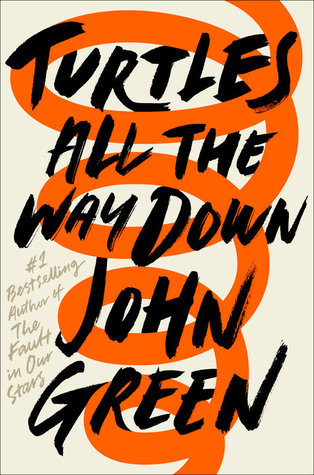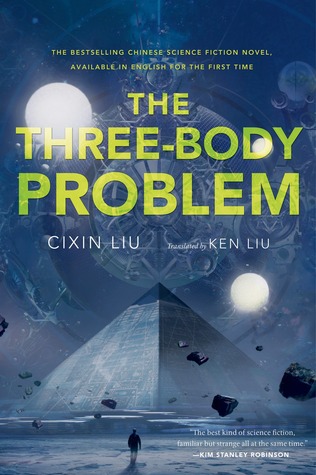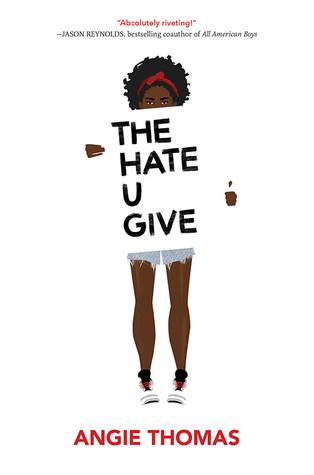If the productivity is calculated from the amount of books that you've read during that year, then 2017 will be my second least productive year ever. I only manage to read 62 books so far, down by seven books if you compare it with last year. The reason is because real life happens and I have two surprises—still related to books—that cost my night reading time. Now, my night is mostly filled with tears. But, it's all worth it, so I hope I can share it soon.
Most of books that I read in this year is still same old basic book, mostly young adult, some classic, some Indonesian popular #literature, and no Infinite Jest yet. Again. But, who cares? This is my top 10 books I read in 2017.
10. R.J. Palacio - Wonder

The idea of Wonder comes from R.J. Palacio's real-life experience when her son met a girl with a birth defect. Her son might only want to ask naïve questions innocuously, but Palacio's avoidance of awkward situation worsened it instead. What these wonderful kids actually need is a modicum of sense of normalcy from common people, not some pity or sympathy. That's actually what Auggie Pullman needs. He's not a boy with mere mandibulofacial dysostosis, but he's a regular 11-year-old boy who loves playing Xbox, a huge fans of Star Wars, and not ready to get in to middle school. From his voice, Wonder is brutally honest, wonderfully and poignantly written. It manages to tackle sensitive issue, some social stigma that's attached to special people in the most innocent way as possible, allowing both young and mature readers to understand how they should feel and behave around these special people.
9. John Green - Turtles All the Way Down

Turtles All the Way Down is not John Green's chief d'oeuvre yet (that still goes to Looking for Alaska), but if you think that Green's way of writing and storytelling can't improve, then you're definitely wrong here. It may still utilize Green's token characters (precocious, pretentious, quirky, nerdy, and acting like the world can't comprehend their wit), but in Turtles All the Way Down Green's craftsmanship glows. Every conversation is quotable and frameable and Tumblr-able, his words flow smoothly, and the book's ending is probably Green's most jaw-dropping and best ending ever. But, that's just cherry on top. The main desert of Turtles All the Way Down is how Green realistically portrays a girl—an embodiment of himself—who suffers anxiety and what happens when her head spirals uncontrollably. The number of mental illness in teenagers may have increased alarmingly in America, but people are beginning to be more aware of the danger of mental illness and Green's latest book may help educate people more.
8. Neal Shusterman - Scythe

Thou shalt not kill is the sixth commandment from Ten Commandments, but what happens when you're obliged to kill others since killing, or called gleaming in Neal Shusterman's latest work, Scythe, is a sacrosanct deed that needs carrying out to maintain the population? Scythe follows Citra and Rowan who were chosen to apprentice to Scythe Faraday, one of the most respectable Scythes in Midmerica. They must learn how to be a Scythe, until each of them must kill each other when they have finished their lesson. Shusterman is a master in proffering such moral dilemma, as showcased wonderfully in Unwind. To be frankly, Scythe still bears some verisimilitude with Unwind where both books explore the meaning of death and life. The fact that the characters in Unwind fought for their lives and believed that unwinding and erasing someone's existence from life is just wrong is juxtaposed with the utopian condition in Scythe, where people no longer die, yet they still hold on their life so tightly. In the end, this never-ending dilemma is the kind of problem that still lingers long after you've finished the book, one that tickles your mind.
7. Melina Marchetta - Looking for Alibrandi

Can you believe that this 1993's outstanding young adult book is Melina Marchetta's debut? With her compelling writing, Marchetta's Looking for Alibrandi is a young-adult book at its purest and finest, and it has established her as one of the best writers, one who's beyond her era. While most of contemporary young-adult books writers try to represent the underrepresented youth's voices by voicing the voices from minority ethnic or people who suffer disease or struggle with their sexuality, Marchetta's character sheet looks really drab. Her main characters are just a regular girl, almost plain-Jane, but she knows that even a regular girl has a loud story that deserves to be heard, and Looking For Alibrandi, in a way, explores the theme of teenage's quest to searching their identity and feminism and everything. The book rolls up like a roller-coaster rail, it builds you up, before Marchetta lets you slide down that, leaving you trainwrecked. There's no other author that can match Marchetta's ability, her skill is incomparable.
6. Liu Cixin - The Three-Body Problem

Most of renowned space operas always take place in a galaxy far far away, where intergalactic wars are inevitable, modern warships shoot deadly laser, obscure planets are everywhere, you mention the tropes. Cixin Liu takes a more down-to-earth route, where the setting of the first book of this exemplary science fiction series mostly takes place in Earth. But, it's not dull at all, as Liu gradually introduces us to the Trisolaris solar system. The book doesn't only explore the beginning of an inevitable war between human being and alien, but also explores the moral consequences, the internal war that happens between humanity. Liu does it in silence, without any loud clank or boom. The Three-Body Problem may be different than your typical sci-fi novel—with a touch of mystery and Chinese revolution history that becomes a foundation of the book—but there's a contemplative quality from the book that makes you ponder.
5. Angie Thomas - The Hate U Give

On "Cranes in the Sky", Solange Knowles deals with rejection that black woman must receive every day in America. It sounds ironic, especially when people start to scream for gender and racial equality, but just because you don't see, it doesn't mean that it doesn't happen. Starr Carter, a sixteen-year-old girl, probably understands this more than any other teenagers when she witnessed her best friend's shooting. Khalil was shot by people who were supposed to protect him. After the incident, there's a social movement, tumultuous riot that demanded justice for the white police, but in the middle of it was Starr, who must maneuver her way in society that commanded her to hide her black identity, to suppress her voice. But the loudest voice comes from the most silenced people, and The Hate U Give booms. It's fittingly released a month after Trump's inauguration, and in an era where discrimination has become a part of our daily life, The Hate U Give is important. Don't let the injustice prevail.
4. Avianti Armand - Negeri Para Peri

On paper, Avianti Armand's Negeri Para Peri is not supposed to be my cup of tea. That's why when my friend lent me the book almost five years ago, I wasn't too eager to start reading the book. But, one night, I felt really bored and I decided to pick this book. That night turned out to be one of the best nights I've ever head. Its cover may be like a drab canvas, but it's a façade. Negeri Para Peri offers some of the bloodiest and darkest stories that I've ever read. The book itself is a collection of short stories, revolving around themes like betrayal, teleoiphilia, blood, or sexuality. Armand's trenchancy is showcased here with her choice of words, her twisty stories, her way of showing human's grotesque. But the book does not only rely on Armand's substantive words. There's an aesthetic here where Armand plays around with the layout of the book, with faded words or black paper. Negeri Para Peri is simply breathtaking, making me regret why I abandon this book for so long. Now my friend won't ever get this book back.
3. Jeff Zentner - Goodbye Days

I would never expect that Jeff Zentner's Goodbye Days would've impacted me this much. The sophomore effort from the author of The Serpent King reminds me of Phil Elverum's heartbreaking album, A Crow Looked at Me, where Elverum laments the death of his wife, trying to make sense everything. But, death is an inevitability, we all know that. What's sardonically funny is that we seem to never prepare for the death's coming, no matter how prepared we think we are, we always lose. Goodbye Days begins with the bleakest scene in the history of young adult books where Carver Briggs attended the funeral of not one, not two, but his three best friends who died in car accident. Nothing can prepare him for such loss, especially he's the one who texted their friend before the accident occurred. He blamed himself for their deaths, but he's scared mostly. Scared of the future without his friends. But, the book is not about his lamentation. It's about finding closure. Death closes someone's chapter of life, but we, the lived ones, are the one who needs closure. Initially it's hard to put Goodbye Days down, but as the plot progresses, it gets visceral and emotional. It's rare thing that a bunch of teenage guys can cause me so much emotion.
2. Leila S. Chudori - Laut Bercerita

There's no other book this year that can squeeze my tear glands as hard as Leila S. Chudori's Laut Bercerita. The book forces us to remember one of the darkest times in Indonesian history, when your right to speak was suppressed, when you lived under the false sense of security. The narrative in Laut Bercerita is similar with the narrative on Dialita's Dunia Milik Kita, a stupendous record by choir consisting women survivor or their children who must be exiled, tortured, and raped because of their alleged involvement with PKI. Both try to dig back the dark history that we've buried, even if their timeline is stretched for more than thirty years. Laut Bercerita mostly takes place during new order and a few years after reformation era, told by two main characters: Biru Laut and his sister Asmara. Biru Laut was an activist whose biggest dream is to impeach the president and democratize this country. He, alongside his other friends who have same vision, often protested the current government, but their little group was deemed as subversive by the government, forcing them to flee and become fugitive. We all know what will happen with Biru right from the start of the book, but his loved ones remained clueless. The second part of the book elaborates how his family unraveled from the eyes of Asmara. She's strong in the surface, she's strong for her family and her brother's lover, but inside, she's the one who's broken the most. But, she fought relentlessly, she fought for justice, she fought for all the missing people. In the end, her brother and all other missing people may never be found, but their spirit will never be unforgettable. Forever.
1. Pierce Brown - Morning Star

Pierce Brown and Jeff Zentner may battle for the most handsome young adult author, but Pierce Brown can easily win the battle for best book I read this year. Brown's conclusion of his stunning Red Rising trilogy is, hands down, the best book that I've read this year. Morning Star amplifies the qualities that makes the trilogy stunning: twisted plot, gut-wrenching bloody scene, and heart-stopping moments. The trilogy is Darrow of Lykos' bildungsroman that allows us to join and fight alongside him, an epic war to bring justice even if he must sacrifice his own flesh and blood. Brown weaves the plot intricately, like a hard-working spider, and he does it consequently, even though he admits that writing Morning Star is harder than everything. He cloistered himself to finish the book, but he realized that this trilogy is a story of camaraderie and cloistering himself sure wouldn't help him finish it. What makes Darrow—and him—strong is the support and trust of his loved ones. and when we understand that, Morning Star becomes deeper than it intends. Red Rising trilogy isn't a story about how an austere man rises to power by himself, but a story about how weak and ordinary man rises to power arduously with the help of his friends. Even though the trilogy contains many death counts that's comparable to Martin's ASOIAF, Brown does it purposefully and beautifully, emphasizing the impact of each death for Darrow's pure heart. It's sure to hard to pick what's the best thing about the trilogy—Brown's enviable writing skill, its twisted plot, its characters—but Brown can't end the book more perfectly. It's a flawless ending, the only ending that respectably closes the journey of Darrow.

2 komentar
Write komentarI love Wonder too :D I hope I can read Red Rising series and the hate you give this year :D
ReplyHope you have a wonderful year in 2018 Daniel :D
portal situs poker
ReplyEmoticonEmoticon